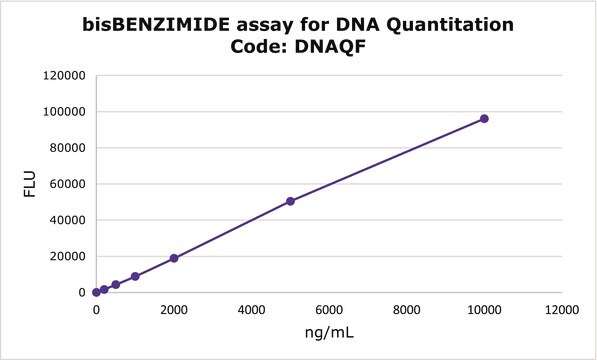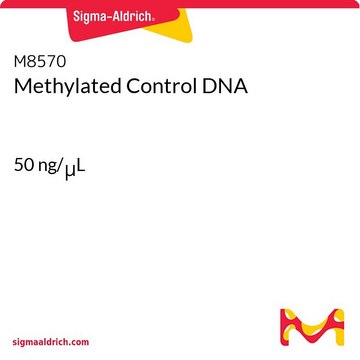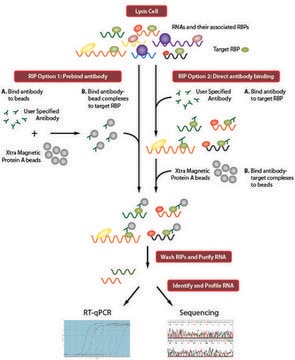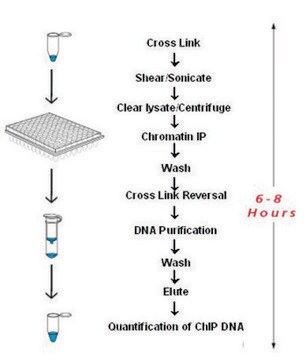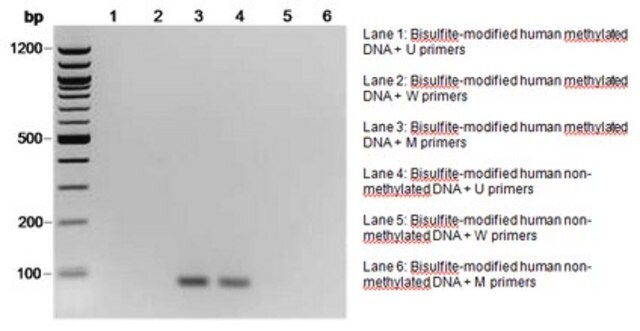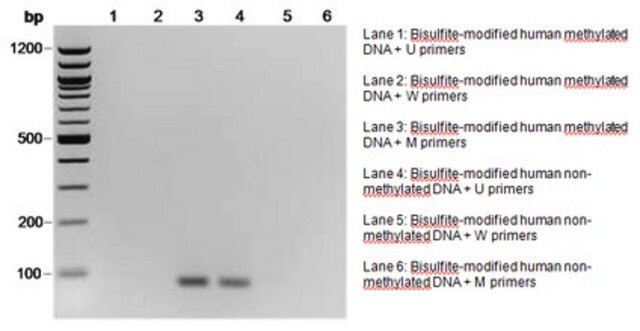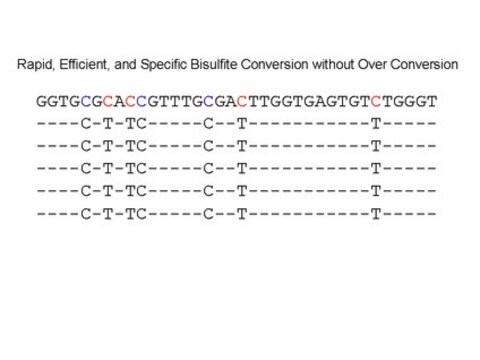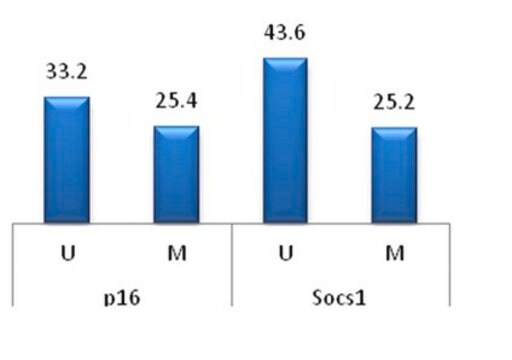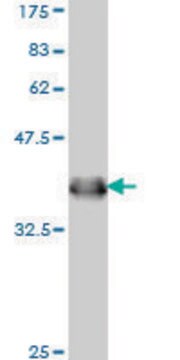MOD50
Imprint® DNA Modification Kit
For bisulfite DNA conversion & purification
Synonyme(s) :
Methylation-Specifc PCR preparation, bisulfite conversion kit, bisulphite modification
About This Item
Produits recommandés
Utilisation
sufficient for 50 reactions
Température de stockage
20-25°C
Description générale
Application
Caractéristiques et avantages
- Only 50 picograms of DNA or 20 cells are required
- Procedure takes less than 2 hours
- Greater than 99% conversion rate
- Extremely low degradation
- Option of convenient one-step protocol
- Consistent and reproducible Bisulfite Modification
- Can be used with genomic, endonuclease digested, and FFPE DNA
Stockage et stabilité
Informations légales
Composants de kit également disponibles séparément
- T3566Clear-view™ Snap-Cap microtubes, size 1.5 mL, naturalFDS
Mention d'avertissement
Danger
Mentions de danger
Conseils de prudence
Classification des risques
Acute Tox. 4 Oral - Aquatic Chronic 3 - Eye Dam. 1 - Met. Corr. 1 - Skin Corr. 1A
Risques supp
Code de la classe de stockage
8B - Non-combustible corrosive hazardous materials
Point d'éclair (°F)
Not applicable
Point d'éclair (°C)
Not applicable
Certificats d'analyse (COA)
Recherchez un Certificats d'analyse (COA) en saisissant le numéro de lot du produit. Les numéros de lot figurent sur l'étiquette du produit après les mots "Lot" ou "Batch".
Déjà en possession de ce produit ?
Retrouvez la documentation relative aux produits que vous avez récemment achetés dans la Bibliothèque de documents.
Les clients ont également consulté
Articles
An article on DNA Methylation and Bisulfite Conversion.
Protocoles
Chromatin Immunoprecipitation qPCR for studying gene regulation across conditions.
Contenu apparenté
The Imprint DNA Modification Kit provides the reagents needed for bisulfite conversion and post-modification clean-up of DNA samples in less than 2 hours.
Notre équipe de scientifiques dispose d'une expérience dans tous les secteurs de la recherche, notamment en sciences de la vie, science des matériaux, synthèse chimique, chromatographie, analyse et dans de nombreux autres domaines..
Contacter notre Service technique